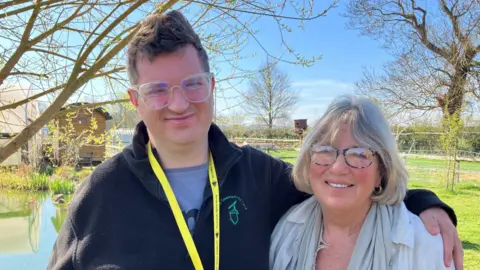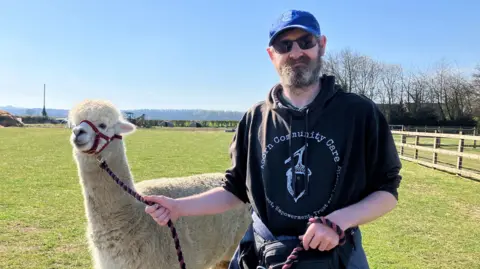Charity's future fear as cost surge eats savings
 BBC
BBCA disability charity says living wage and National Insurance increases mean it will be forced to empty its reserves of cash to continue caring.
Acorn Community Care in Norton, North Yorkshire, helps 30 adults with learning disabilities and predicts that it needs to use more than £50,000 of savings to continue running this financial year.
John Storr, head of operations, said more than 80% of its budget was spent on staff. He said: "It is a really scary position to be in. Reserves are only there once."
The government, which increased National Insurance from 6 April, said its "Plan for Change" had taken steps to deliver an extra £26bn for health and social care.
This week the threshold for employers' National Insurance contributions was lowered while the rate increased to 15%, up from 13.8%, pushing up costs for businesses.
Meanwhile the voluntary Real Living Wage, which is an estimate of what people need to live, increased to £12.60 an hour.
This differs from the statutory National Living Wage, which pays a minimum of £12.21 to those aged over 21.
'Providers will fall'
As a result of the increases, Acorn said its budget for this financial year had increased to more than £2m.
Mr Storr said: "There is going to be casualties this year, there is going to be providers that fall.
"When you look at businesses up and down the country they are able to raise their prices to offset against the rises. We are reliant on the local authority saying what we are allowed to receive."
The charity gets most of its funding from North Yorkshire Council and signed a five-year deal with them in 2022. It said it will not getting an uplift in funding this financial year.
The local authority said it had allocated an extra £24m to its adult social care care budget despite not receiving that money from government or the social care precept.
It also said care providers in the county charged some of the highest rates in the country and it had to strike a balance between supporting providers and getting value for money.
It said it had provided additional funds to help with national insurance contributions to all but those who charge the highest rates.
The council's health and adult services boss, Richard Webb, said they had spoken with Acorn about the issues they face.
"As with all care providers, we will continue to honour the rates submitted to us up to 2027," he added.

Acorn provides supported housing for 10 adults with learning disabilities. Another 20 attend the smallholding during the week.
The clients are cared for by 55 staff plus volunteers. Together they look after sheep, goats, alpacas, horses and chickens, learn horticulture and cooking.
Tom Fletcher, 41, who is visually impaired and has cerebral palsy and learning disabilities, has been living at the farm for about three years.
Mum Libby Cass, said the charity had "made a massive difference" to his life.
"The staff here can see beyond the basic daily care, they help with Tom's mental state and that consequently helps me a great deal. To see Tom happy is magic," she said.
"He has a life that he is driving for himself, he isn't just babysat, and that is something I never envisaged."
Simon Harrison, 41, has learning disabilities and a history of mental illness. He lives in a house with two other Acorn residents and said the charity had also transformed his life.
He said: "My anxiety was bad, I didn't like big groups. They have given me independence and encouraged me to do things on my own."
A Department of Health and Social Care spokesperson said the current government inherited problems with the economy, NHS and social care but had already "taken action to deliver an extra £6bn for health and social care".
"We've brought in a £3.7bn funding boost, 7,800 new adaptations to help disabled people live independently in their own homes, and we are also introducing the first ever Fair Pay Agreement for care professionals," they added.
Listen to highlights from North Yorkshire on BBC Sounds, catch up with the latest episode of Look North.
